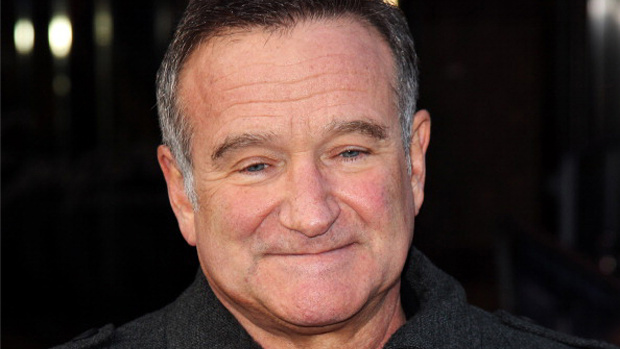Inside The Tragic Final Months Of Robin Williams Life
- Publish Date
- Monday, 3 October 2016, 12:13PM

When Robin Williams died suddenly in August, 2014, the world was heartbroken but more than this, they were confused.
He was one of the funniest men in the world at the time. Audiences would scream with laughter when he appeared on talk shows and on-screen he was nothing less than captivating.
Now, Williams' widow Susan Schneider has detailed why the actor ended his own life, penning a heart-wrenching personal essay for the medical journal Neurology entitled 'The Terrorist Inside My Husband's Brain'.

Schneider and Williams were married from 2011 until his death and, in the essay, she addresses the couple's unrelenting search for a proper diagnosis as Williams was originally diagnosed with Parkinson's disease.
Williams instead had Lewy body disease, a form of dementia that is still widely misunderstood and often underdiagnosed.
Lewy body disease isn't an uncommon form of dementia, almost 1.5 million Americans suffered from the neurological disease last year. The issue is its underdiagnosis. Often sufferers are diagnosed as having Alzheimer's, or in Williams' case, with Parkinsons.
Perhaps the saddest part was that the actor-comedian realised what was happening to his brain.
"Robin was losing his mind and he was aware of it. Can you imagine the pain he felt as he experienced himself disintegrating? And not from something he would ever know the name of, or understand? Neither he, nor anyone could stop it - no amount of intelligence or love could hold it back," Schneider wrote.
She goes on to describe his symptoms throughout the article - listing everything from panic attacks to paranoia to body tremors. The coroner's report would later reveal Robin had a high number of Lewy body proteins in his brain stem which cause the Parkinson-like symptoms.
While shooting Night at the Museum 3, Williams struggled to remember a single line which Schneider said was "devastating to him".
She describes him as a genius and a Julliard-trained actor and believed that his suffering was much greater than he ever actually let on.
"I just want to reboot my brain," he constantly said.
She describes how Robin was drowning in his symptoms, thrashing at night with insomnia, struggling to find the words he wanted to say, being stuck in a frozen stance and only being able to move at a shuffle.
Despite all this, there is still no cure for Lewy body disease.
His widow believed the doctors were close to appropriately diagnosing him but regardless "there is no cure and Robin's steep and rapid decline was assured," Schneider said.
Doctors described the disease as "chemical warfare" in Robin's brain and "one of the worst LBD pathologies they had seen" but despite this the married couple still went to bed on Robin's final night in their traditional way.
"Goodnight, my love," Robin said.
"Goodnight, my love," Susan replied.
The next day, Robin passed away at age 63.
Where to get help
• In an emergency: call 111
• Lifeline: 0800 543 354 (available 24/7)
• Suicide Crisis Helpline: 0508 828 865 (0508 TAUTOKO) (available 24/7)
• Youthline: 0800 376 633, or text 234 (available 24/7) or talk@youthline.co.nz or live chat (between 7pm and 11pm)
• Kidsline: 0800 543 754 (available 24/7)
• Whatsup: 0800 942 8787 (1pm to 11pm)
• Depression helpline: 0800 111 757 (available 24/7)
• Rainbow Youth: (09) 376 4155 (weekdays 11am to 5pm)
• NetSafe: 0508 NETSAFE (0508 638 723), www.theorb.org.nz
Take your Radio, Podcasts and Music with you

